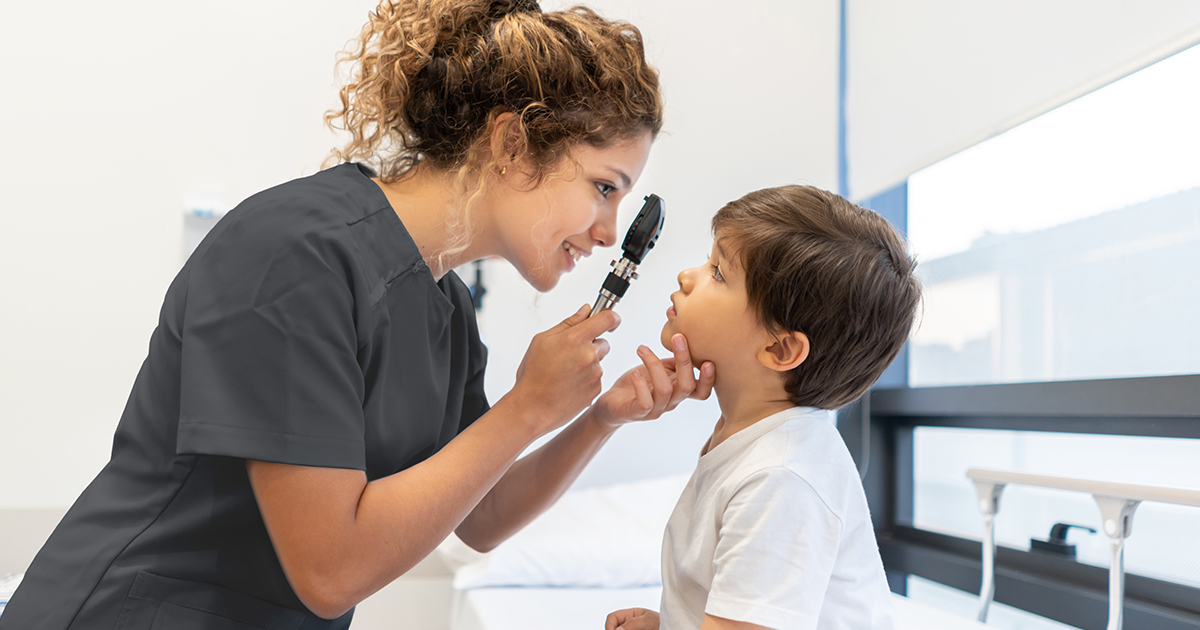
For many parents, there’s nothing scarier than seeing your child fall and hit their head. If your child plays sports, you’ve likely cheered them on and worried about injuries at the same time.
Concussions are indeed the most common type of head injury associated with sports. However, kids can get concussions anywhere – at school, at camp, at home, and so on. Any child who takes a blow to the head can experience a concussion, even infants.
Here’s the surprising part: most patients with suspected concussions, including kids, don’t need to visit an ER. In fact, a study showed that 90% of patients who went to the ER for a concussion were discharged the same day, and they could have gone to urgent care and saved money.
Keep reading to learn the signs of a concussion in children, when you should visit the ER for a concussion, and when you can go to urgent care.
Whether it’s a bad fall on a bicycle or a spill from a swing, children are highly susceptible to bumping their heads. However, it can be difficult to identify the signs of concussions in kids, especially if they’re too young to describe how they’re feeling. Thankfully, there are many signs that parents can watch for.
The physical signs or symptoms of concussions in kids include:
The mental signs or symptoms of concussions in kids include:
Although not all head injuries cause a concussion, prompt treatment leads to better outcomes if your child does have an injury that requires medical care.
Concussion symptoms can develop on impact or up to 48 hours after the incident, so be sure to watch your child closely for the first few days. If you see any of the physical or mental signs listed above, your child should be evaluated by a doctor right away.
Here are some other precautions to take:
In the past, doctors recommended waking your child every hour or two to check on them. Today, they recommend letting your child rest and sleep as needed to speed the healing of their brain – happy news for parents and kids who don’t enjoy being sleep-deprived. It’s best to have your child sleep in a quiet room that’s cool and dark.
Yes! Most people who have concussions (kids included) don’t need to visit the emergency room, making urgent care an ideal alternative. Since many concussions happen on evenings or weekends, urgent care is usually much faster than waiting for an appointment at a doctor’s office.
The main difference between urgent care and the ER for concussion care is imaging. Emergency rooms are able to perform CT scans, MRIs, and other types of brain imaging – but those services are costly. Fortunately, for people with mild concussion symptoms, expensive imaging often isn’t needed.
All vybe locations have procedures in place to rapidly identify high-risk patients with potentially serious conditions and refer them to the ER. So you can safely take your child to urgent care first – and likely save yourself from hours of waiting and a large ER bill.
If your child develops any of the following symptoms, head to the ER immediately:
When head injuries happen, walk in or schedule an appointment at your local vybe urgent care to have you or your child evaluated and treated for a concussion. If necessary, we can prescribe over-the-counter pain relievers or anti-nausea medications to help manage symptoms.
vybe can also diagnose and treat other sports injuries like sprains, dislocations, and minor fractures and provide you with the necessary equipment for recovery.
All vybe locations have licensed medical professionals with a wide range of healthcare knowledge, and we’re open seven days a week with extended weekday hours to serve you. So, use your head and visit vybe today!
FIND YOUR VYBE